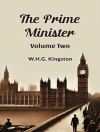Louis Becke’s ‘Edward Barry’ intricately weaves a tale set against the backdrop of the South Seas, masterfully blending adventure and romance with keen social observation. The novella deftly captures the essence of its period, reflecting late 19th-century attitudes toward colonialism and the exoticism of the Pacific Islands. Becke employs a lyrical prose style, imbued with vivid imagery that transports the reader to lush landscapes, creating an immersive experience that simultaneously critiques and romanticizes the colonial enterprise. The nuanced characterizations, particularly of the titular Edward Barry, reveal the complexities of human desires and moral dilemmas faced in a rapidly changing world. Louis Becke, a prominent figure in Australian literature, gained first-hand experience of the Pacific Islands through his extensive travels as a trader and a sailor. This deep connection with the region and its culture informs his storytelling, allowing him to blend personal insight with universal themes of love, loss, and identity. Becke’s own tumultuous life and experiences in the South Seas often surface in his works, showcasing his ability to translate the richness of his travels into compelling narratives. ‘Edward Barry’ is a must-read for anyone interested in the interplay of adventure and cultural exploration. Becke’s lyrical style and keen social critique make this novella not only an entertaining read but also a profound commentary on the human condition in the context of colonial encounters. Dive into this captivating world and witness the beauty and contradictions of a bygone era.
Over de auteur
George Lewis Becke, more commonly known as Louis Becke, was a prolific writer whose literary career spanned the late 19th and early 20th centuries. Becke was born on June 18, 1855, in Port Macquarie, New South Wales, Australia. He led an adventurous life, starting at the age of 16 when he sailed to the Pacific Islands and involved himself in a variety of professions such as a trader, a plantation manager, and even a beachcomber, experiences that imbued his writing with a sense of authenticity and vivid detail. Becke’s stories were notably influenced by his time in the Pacific, and he mined his extensive first-hand knowledge of the region to craft tales that resonated with exoticism and adventure, often touching on themes of colonialism and cultural encounters. His work, including the notable ‘Edward Barry: South Sea Pearler’ (1899), captivatingly portrays the tumultuous lives of European adventurers and the indigenous peoples of the Pacific, set against a backdrop of lush tropical landscapes and the perilous maritime environment. Becke’s literary style is characterized by an engaging narrative voice, a flair for dramatic storytelling, and sharply drawn characters, all of which have cemented his reputation as a significant writer of Pacific fiction. Though his works have faded from popular readership, scholars of colonial and post-colonial literature still recognize Louis Becke for his contributions to the literary portrayal of the Pacific Islands during a time of considerable change.












